Search
 News
News
UCSF Lung Transplant Patient No. 1,000 Looks Ahead to More of the Good Life
Hospital Innovations Boost 3-Year Survival From 50% in 2001 to 90% 20 Years Later Video
Video
Slumber Secrets: New Insights into the Complexities of Sleep and Managing Common Issues
Sleep medicine specialist Rochelle Zak, MD, delivers a rousing update on what’s known about sleep’s stages and physiological payoffs, followed by her guide to assessing and treating insomnia – by far the main sleep issue seen in primary care.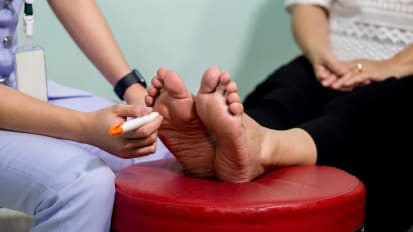 Video
Video
Keep Diabetic Patients on Their Feet: Keys to Identifying Limb-Threatening Issues
In a country where more than 9% of adults have diabetes, Alexander Reyzelman, DPM, discusses the implications for those who also have peripheral vascular disease. Video
Video
A Guide to GERD: Managing Symptoms and Complications of a Common Condition
With gastroesophageal reflux disease affecting 40% of the U.S. population every month, primary care providers need a straightforward plan for initiating therapy, as well as an up-to-date understanding of causes and treatment complications.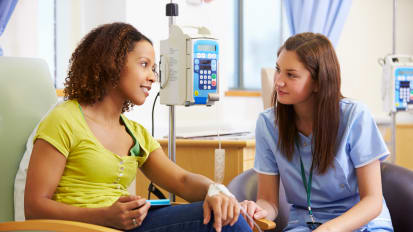 Video
Video
Cutting-Edge Cancer Care: New Approaches to Tricky Tumors
UCSF specialists report from the front lines of treatment for neuroendocrine tumors, pancreatic cancer and sarcomas. News
News
Advancing Precision Medicine for Neuro-Oncology Patients: Q&A with David Solomon, MD, PhD
UC San Francisco neuropathologist and molecular neuro-oncologist David Solomon, MD, PhD has reached a unique and impressive milestone: the publication of his team's 50th neuro-oncology research study stemming from the UCSF500 Cancer Gene Panel, a molecular diagnostic test that identifies genetic changes in the DNA of a patient's cancer. Video
Video
A Handy Guide to Keep in Reach: Sports Injuries of the Upper Extremity
Orthopedic surgeon Nikki Schroeder, MD, chief of UCSF’s hand, elbow and upper extremity service, shows providers how to pinpoint the problem when patients present with elbow, wrist or hand pain. News
News
Best Practices for Implementing Virtual and Hybrid Cardiac Rehabilitation Programs
In a new study, UCSF researchers found that patients participating in either virtual or hybrid cardiac rehabilitation (CR) programs showed similar improvements in functional capacity to those of in-person CR program participants. Hybrid programs combine in-person and virtual delivery. Video
Video
Hurting Hips: How to Identify and Manage Common Conditions
Orthopedic surgeon and sports medicine specialist Stephanie Wong, MD, takes you on a “tour of the hip” in this straightforward guide to acute and chronic hip injuries frequently seen in clinic. News
News
Precision Prostate Cancer Treatment Reduces ADT-Related Dementia Risk
In a new study, UCSF researchers found that cumulative androgen deprivation therapy (ADT) exposure was associated with the onset of dementia in a nationwide longitudinal registry of men with prostate cancer. News
News
Virtual Cardiac Rehabilitation Produces Similar Results as In-Person Treatment
UCSF Study Shows Potential Benefit of Expanding Availability for Patients Cardiac rehabilitation (CR) reduces hospitalization and mortality and improves quality of life for patients with cardiovascular disease. Despite its benefits, only 24 percent of eligible patients in the U.S. participate in CR due to financial and logistical barriers. News
News
Endoscopic Removal of Benign Complex Colorectal Lesions Improves Patient Outcomes
Endoscopic mucosal resection (EMR) is a safe and effective alternative to surgery for benign complex colorectal lesions, according to research led by UCSF gastroenterologist Tonya Kaltenbach, MD. News
News
Regenerative Medicine Could Soon Transform Treatment of Musculoskeletal Conditions
UCSF’s Brian Feeley, MD, and Xuhui Liu, MD, in collaboration with Kevin Healy, PhD, received a $1.2 million grant for their lab from the California Institute of Regenerative Medicine to continue pursuing their translational research in regenerative medicine.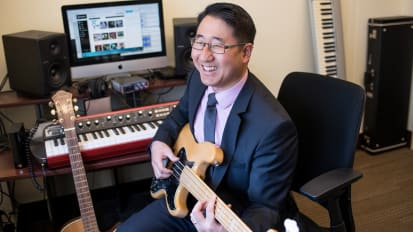 News
News
Custom Cochlear Implant Programming Shows Promise for Improving Music Perception
A new clinical trial underway at UCSF, High-Resolution CT-Guided Cochlear Implant Programming, aims to improve speech and music perception for cochlear implant (CI) users. News
News
3D Facial Analysis Shows Biologic Basis for Gender-Affirming Surgery
In order to validate surgical decisions for gender-affirming facial surgery, researchers from the UC San Francisco and the University of Calgary set out to quantify the effect of sex on adult facial size and shape through an analysis of three-dimensional (3D) facial surface images.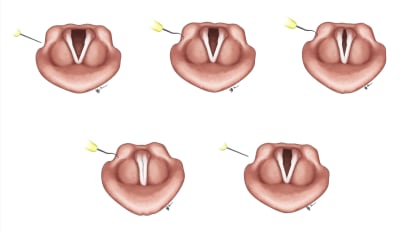 News
News
New Laryngopharyngeal Sensitivity Test Could Transform Patient Care
UCSF researchers have developed a first-of-its-kind technique to objectively evaluate laryngopharyngeal sensation.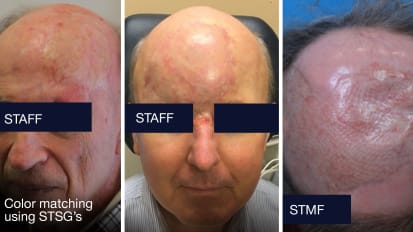 News
News
Novel Technique Improves Skin Color Match in Facial Reconstruction
A new procedure developed by UCSF facial plastic surgeons provides patients undergoing microvascular facial reconstruction with a more accurate skin color match than was previously possible.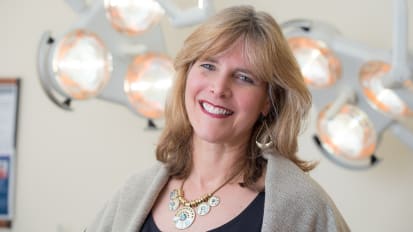 News
News
UCSF Deploys Innovative Data System to Integrate Research and Care
UC San Francisco (UCSF), in collaboration with the Quantum Leap Healthcare Collaborative (QLHC) and the U.S. Food and Drug Administration (FDA) has developed the OneSource system to seamlessly integrate clinical care and research data. News
News
UCSF’s Dr. Mitchel Berger on the Cancer Moonshot Relaunch
On Feb. 2, 2022, Mitchel Berger, MD, neurosurgeon and director of the UCSF Brain Tumor Center, attended the relaunch of the White House’s Cancer Moonshot initiative at the invitation of President Joe Biden and Dr. Jill Biden.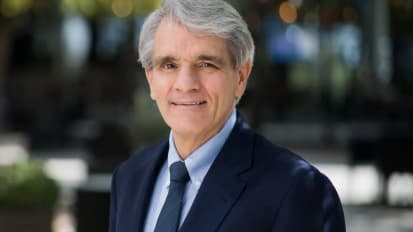 News
News
UCSF Neurologist to Receive Prestigious Scientific Award
Stephen L. Hauser, MD, Professor of Neurology and Director of the UCSF Weill Institute for Neurosciences, has been chosen by the American Brain Foundation (ABF) to receive its second annual Scientific Breakthrough Award. Hauser is being honored for his career-long commitment to advancing the understanding of the genetic basis, immune mechanisms and treatment of multiple sclerosis (MS).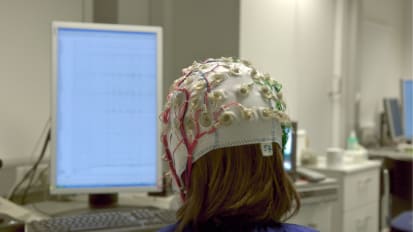 Video
Video
Assessing First Seizures: Steps for Primary Care Providers
Neurologist Manu Hegde, MD, PhD, breaks seizures into basic classes and puts the numerous epilepsy syndromes into three useful categories. He discusses how to take better histories; what to check for during physical exams; and what to know about antiseizure drugs, including specific side effects.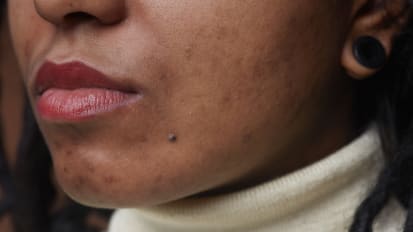 Video
Video
All About Acne (and Other Pustular Problems): Better Management of Skin Conditions
Dermatologist Timothy Berger, MD, dispels acne myths; clarifies which meds are appropriate for which patients; describes possible underlying issues, such as metabolic syndrome and PCOS; and discusses other serious skin issues, from abscesses to staph infections. Video
Video
Motherhood After Chemo: Current Approaches to Fertility Preservation
In the past, young women newly diagnosed with cancer typically received no fertility counseling or were assured they’d be fine if their periods resumed after treatment.Mitchell Rosen, MD, explains, it’s a more hopeful world for these patients, with better ways to predict the likelihood of ovarian failure or early menopause.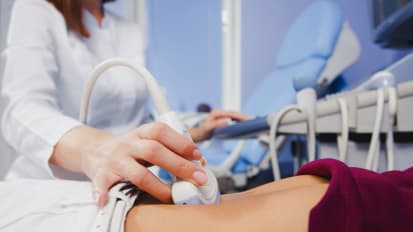 News
News
How to Assign Malignancy Risk to Adnexal Masses Based on Imaging Features
Adoption of the Ovarian-Adnexal Reporting and Data System (O-RADS) by UCSF radiologists, gynecologists and gynecologic oncologists has reduced ambiguity in ultrasound (US) and MRI reporting of ovarian and adnexal lesions, with enormous potential to improve patient outcomes.

